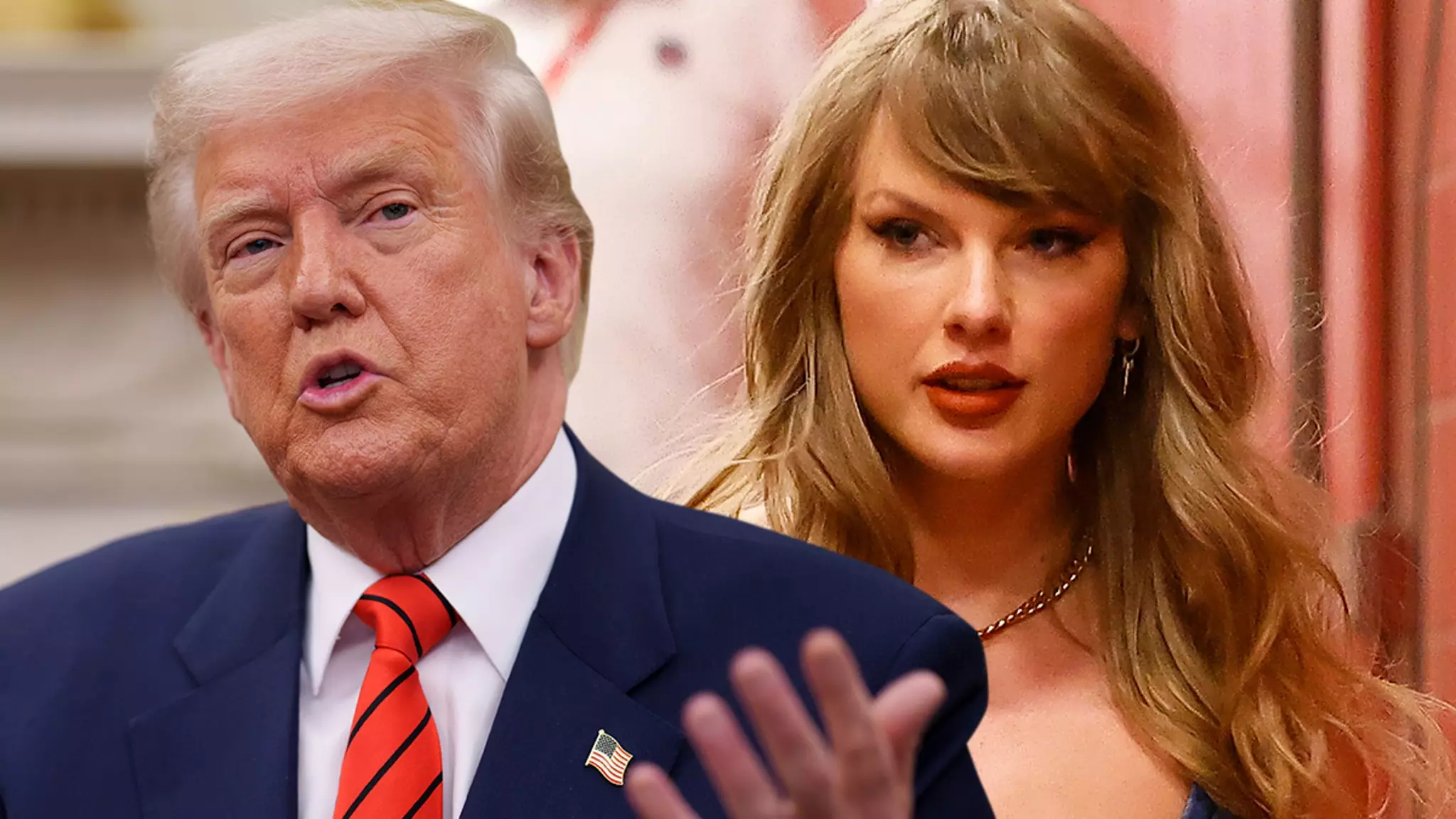In an era where celebrity and political opinions intertwine more than ever, Donald Trump’s remarks about Taylor Swift have raised eyebrows and ignited conversations across social platforms. The former president, known for his polarizing views, took to Truth Social to declare, “Has anyone noticed that, since I said ‘I HATE TAYLOR SWIFT,’ she’s no longer ‘HOT?'” This bold statement encapsulates not just Trump’s personal feelings towards the pop icon but also underscores a greater theme of power dynamics in celebrity culture. The implications of a public figure, particularly a former president, weighing in on an artist’s appeal based on personal grudges highlight the absurdity and pitfalls of celebrity-driven political discourse.
Shifting Perceptions and Public Reactions
The immediate fallout from Trump’s comments was predictably contentious, especially among Swift’s fervent fanbase, known as the “Swifties.” Many took offense to what they perceived as a deeply misogynistic remark thinly veiled as a personal opinion. Trump’s past accolades for Swift’s beauty—where he once praised her as “unusually beautiful” in a 2023 interview with biographer Ramin Setoodeh—serve as a stark contrast to his current disdain. This about-face prompts an exploration of how political allegiances can dramatically alter public perception, particularly within the realm of celebrity. Could it be that Swift’s public endorsement of Kamala Harris in September 2024 effectively sealed her fate in Trump’s eyes, reducing her intricate artistry to an outdated trope of beauty?
Analyzing the Underlying Dynamics
What’s particularly fascinating about this saga is the lens through which we view attractiveness and value. Trump’s preferences seem to operate under the premise that beauty is directly linked to political allegiance. This notion casts a shadow over how we engage with art and artistry—diminishing a talented performer’s accomplishments to mere physical attributes contingent on political alignment. By reducing Swift to her physical appeal, Trump diminishes her complex contributions to music and popular culture, an act that detracts from the essence of artistry itself.
Cultural Reflections and Public Discourse
Moreover, this incident invites broader societal reflections on how public figures navigate their personal opinions versus their responsibilities as influencers. In a world consumed by social media, such comments can spark heated debates and distract from pressing issues. Trump’s provocation serves both as a red flag and a mirror, revealing not just his personal sentiments but also the collective ways we engage with fame, politics, and femininity. Are we perpetuating a culture that values women’s voices only when they align with our own beliefs? Such questions linger long after the headlines fade.
The Larger Narrative of Celebrity and Politics
The episode mirrors a larger narrative where celebrity opinions wield significant influence in political discourse. The way Trump’s commentary frames Swift not only reflects his individual biases but also signals to a broader audience how political identities can color our perceptions of individuals. As the lines between celebrity and politics blur further, these exchanges will continue to provoke discussions over the limits of personal opinion and the weight of public sentiment in shaping perceptions of beauty, artistry, and talent.

Leave a Reply